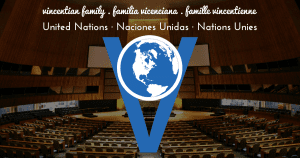 Promotion of human rights was not a focus point for the representatives of the countries who gathered in 1945 in San Francisco to found the United Nations. But the horrors and brutality of the Second World War had convinced them of the need to include protection of human rights as one of the goals.
Promotion of human rights was not a focus point for the representatives of the countries who gathered in 1945 in San Francisco to found the United Nations. But the horrors and brutality of the Second World War had convinced them of the need to include protection of human rights as one of the goals.
When the UN General Assembly met for the first time in London in January and February 1946, the Economic and Social Council (ECOSOC) appointed a “nuclear” commission to draw up a structure and mission for a commission on human rights. One of their crucial decisions was to draft an international bill of rights and recommend the means of implementing it when the Commission on Human Rights met. The Commission had representatives from 18 member nations, and Eleanor Roosevelt of the United States was unanimously elected as its chair at their first meeting on April 29, 1946. Eleanor Roosevelt’s passionate commitment to human rights, knowledge and skills she acquired as a political activist and reformer helped her to play a leading role in drafting the declaration.
The Declaration of Human Rights, a cornerstone in modern human rights movement, was adopted by the UN General Assembly in Paris on December 10, 1948. Although the Declaration lacked a unanimous assent, Eleanor believed it would become “a document of moral force in the world.” The Declaration of Human Rights proclaimed the inalienable rights of every human being regardless of race, color, religion, sex, language, political or other opinion, national or social origin, property, birth or other status.
The enduring universality of its values of equality, justice and human dignity have become part of the constitutions of many countries; untold human suffering has been prevented and foundations for a more just world have been laid. It has inspired many nongovernmental human rights groups to bring pressure on governments to protect the rights for their citizens. Human rights enshrined as one of the three pillars of the United Nations, along with peace and development.
Still, seventy years on, full respect for the human rights and fundamental freedoms of millions of people around globe are a distant dream. What is being seen is a general hostility towards human rights and those who defend them, by vested interest groups, non-state actors and States.
On December 10, 2017, the United Nations launched a year-long campaign to honor the foundational human rights document, which marks its 70th anniversary in 2018. The UN Secretary General Antonio Guterres, in his message at the launch stated, “We see hatred, intolerance, atrocities and other crimes. These actions imperil us all.” He urged people and leaders everywhere to stand up for all human rights – civil, political, economic, social and cultural – and for the values that underpin hopes for a fairer, safer and better world for all.
At the launch, the UN High Commissioner for Human Rights, Zeid Ra’ad Al Hussein called on the world community to “organize, mobilize in defense of human decency, in defense of a better common future and in defense of human rights. The time is now, and the leader you are looking for is – you,” as he launched a year-long campaign to celebrate the UDHR on December 10, 2017. As members of the Vincentian Family, what actions can we take in our ministries to promote human rights? How shall we protect the human rights of the people on the margins we serve? How will we join the world community to celebrate the 70th anniversary of the Universal Declaration of Human Rights during 2018?
Resources
Visit this page to participate in online activities: http://www.standup4humanrights.org/en/index.html
You can find the UDHR here: http://www.un.org/en/universal-declaration-human-rights/
Teresa Kotturan, SCN, NGO Representative for Sisters of Charity Federation








0 Comments